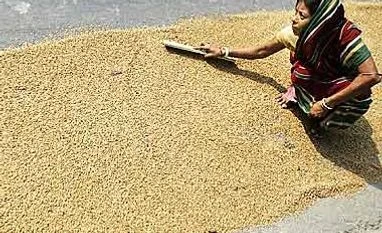Patnaik made this announcement while launching the distribution of digitised ration cards among beneficiaries under the National Food Security Act at a function here. Other ministers distributed the NFSA ration cards in 14 districts.
The state government had been supplying subsidised rice at the rate of Re 1 a kg to all the SC-ST residential schools since 2008. However, there is no provision under the NFSA whether these residential schools could get benefit, a senior official said.
"The state government will take the burden of the expenditure to be made for supply of subsidised rice to SC-ST residential schools," Patnaik said.
Stating that his government accords priority to proper implementation of the NFSA, Patnaik said poor would need to get the food security in order to maintain inclusive growth of the state. "The poor people have gained confidence by getting food security in Odisha," the Chief Minister said.
Patnaik said the NFSA ration cards were being issued in the name of elder women members of families in Odisha, which he said indicated his government's commitment towards woman empowerment.
Food Supplies and Consumer Welfare Minister Sanjay Das Burma, who was present during the launch, said, "Transparency has been maintained in preparing the list of beneficiaries. Errors, if any, regarding the beneficiaries can be corrected within 3 months."
The state government has decided to implement NFSA across the state in two phases. While first phase will be implemented in 14 districts from November 1, the second phase will come into force from December 1 in the remaining 16 districts.
The districts which will be covered in the first phase comprises Malkangiri, Koraput, Kalahandi, Nuapada, Balangir, Kandhamal, Boudh, Angul, Sonepur, Bargarh, Sambalpur, Deogarh, Jharsuguda and Gajapati.
A total of 3.26 crore beneficiaries will be eligible to get benefits under the NFSA in Odisha, the minister said.
)